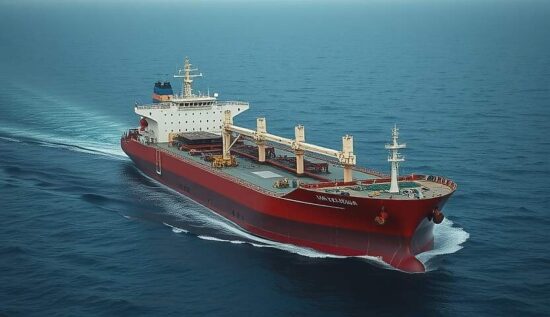Oil prices for tankers continue to rise as the expected decline in oil shipments by sea due to US sanctions against Russian ships is anticipated. According to sources in the industry, cited by Reuters, another factor driving the increase is the growing demand for ships for oil transport from the Middle East to Asia.
Shell, a major oil company, has reportedly booked three large oil tankers, capable of carrying up to two million barrels of oil, at a Worldscale 70 rate, according to a report. The ships are scheduled to transport oil from the Middle East to China in early February, with the Chinese refinery operator Shenghong Petrochemical also booking two tankers for the same period at the same rate, a shipbroker told the newspaper.
Worldscale is a standardized system for calculating the freight rate for a specific oil tanker, created in 1952 by the London Tanker Broker Panel at the request of British Petroleum and Shell. The rate is a number that indicates the cost of transporting a ton of oil in US dollars from one port to another.
The strong demand for oil tankers pushed the freight rate on the Middle East-China route to 70.45 on January 15, a 10.75-point increase from the previous day, according to two shipbrokers and a trader quoted by the newspaper. For comparison, Unipec, a Chinese company, had booked two tankers for oil transport from the Middle East at a rate of 51 to 52.25 in late January, as reported by Reuters.
The freight rate for a tanker on the Middle East-Singapore route rose by 10.45 to 71.80, while the rate for a voyage from West Africa to China increased by 9.23 to 70.67. The cost of transporting oil from the Gulf of Mexico to China is expected to be $8.715 million per voyage on January 15, a $1.895 million increase from the previous day, a shipbroker said.
Another shipbroker, speaking to the news agency, did not rule out the possibility of further rate increases in February, as companies require more tankers for the transport of oil from Saudi Arabia.
Chinese state-owned oil companies and large private refineries, including Cnooc, Yulong Petrochemical, and Jiangsu Eastern Shenghong, are sending urgent requests to buy oil to prepare for possible disruptions in fuel supplies due to the tightened sanctions against Russia and Iran, as reported by Bloomberg. On January 10, the US imposed sanctions on Gazprom Neft and Surgutneftegaz, as well as their subsidiaries. At least 180 oil tankers, icebreakers, supply ships, and LNG tankers, considered by Washington as part of the “shadow fleet” for the transport of fuel, are affected by the restrictions.
According to data from MarineTraffic and LSEG, at least 65 oil tankers are currently anchored in ports, including those off the coasts of China, Russia, and Singapore, following the tightening of US sanctions, as reported by Reuters.
Moscow has described the sanctions as illegal.





